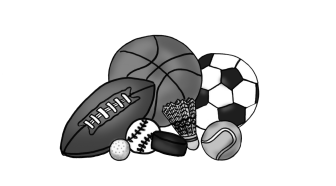
Student-athletes know just how difficult balancing their student responsibilities with their athletic obligations are. Oftentimes, the time commitment and the physical toll required to perform at a high, competitive level can be overwhelming. Yet, there are a handful of students who manage to compete in not one, not two, but three sports throughout the school year.
One of the most difficult and inevitable issues pertaining to a tri-sport athlete is managing practice, games and homework altogether. Senior Andros Petrakis, who participates in the water polo, soccer and swim season, says, “Sports practice is non-negotiable, but with schoolwork and college apps, you [have to] weigh your options — what you have to do now, and what you can put off until the weekend.”
Sophomore Kevin Adams, who plays football, basketball and baseball, agrees with the prioritization strategy, saying, “When I get home, I plan what I’m going to do that night, and what I’m going to do each night [that week].”
However, junior Scott Chow, who competes in cross-country, wrestling and track, views the time crunch as a good thing. He says, “It means I have to be a lot more careful about not procrastinating. I actually like it because it forces me not to procrastinate, and it kind of puts me on a deadline.”
Despite the time management struggles that are inherently embedded in the life of a tri-sport athlete, Aragon still churns out dozens of them each year. Last year, four freshmen, nine sophomores, eight juniors and five seniors (a total of twenty-six students) were recognized as tri-sport athletes for the 2013-2014 school year. Of the five seniors, four were awarded the prestigious David Stiles 12 Sport Athlete Award, which goes to student-athletes who competed in three sports for all four years of their high school careers.
With respect to the awards, Petrakis says, “Don’t become a tri-sport athlete just to have the title. It’s a tremendous amount of energy, time and work going into each sport, and you have to be committed and have passion for whatever you are doing. Enjoy it.”
Another qualification to be a tri-sport athlete is fitness. Between Adams, Chow and Petrakis, the three agreed that, as Chow puts it, “The cardio, just in general, helps a lot.” As a matter of fact, cardiovascular exercise spans across many, if not all, sports, and is vital to the success of athletes.
Adams remarks, “[One overlap between the sports is that] you do a lot of running, for sure.” One potential issue tri-sport athletes face is that they regularly play with teammates and opponents who, instead of spreading talent across numerous sports, decide to hone their skills in one discipline alone.
Petrakis says, “I think that it does put me at a slight disadvantage, but that’s my choice to play three sports. If I wanted to be the best at a certain sport, I would play it year-round, but life is all about balance.”
Adams adds, “For baseball, you usually have to get warmed up before you play, and I’m not usually warmed up [because I was in season with another sport. Thus,] in the summertime, I do a lot of practicing for each sport. It takes a lot of dedication.” Adams’s difficulty in moving from one sport to another is not an uncommon occurrence.
“Going from water polo to soccer actually puts me at a disadvantage. Water polo is a very brutal and physical sport, where throwing kicks, punches, grabbing and pulling each other to stop movement is commonplace,” says Petrakis. “If any of that is transferred to the soccer field, there are extreme repercussions, as soccer is much less of a contact sport. It usually takes me the first month of soccer to get out of my physical polo state and get back to the less violent style soccer is played in.”
All in all, to many, being a tri-sport athlete is a rewarding experience. Adams says, “I like being a tri-sport athlete, but you have to enjoy running a lot, and you have to be able to manage your time too.”



